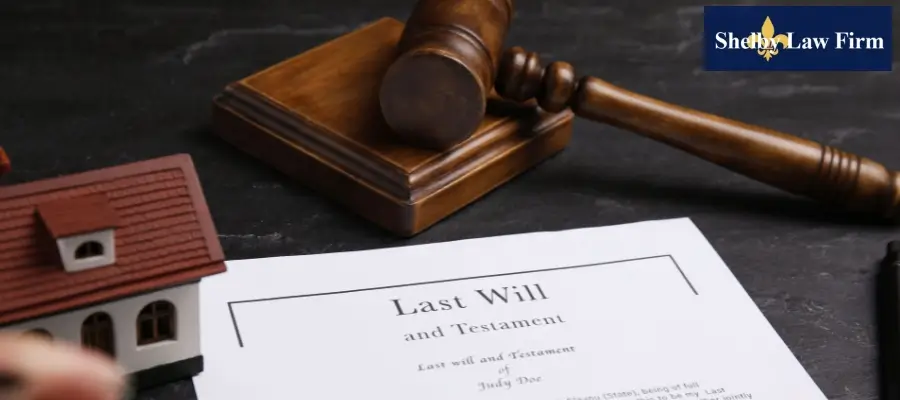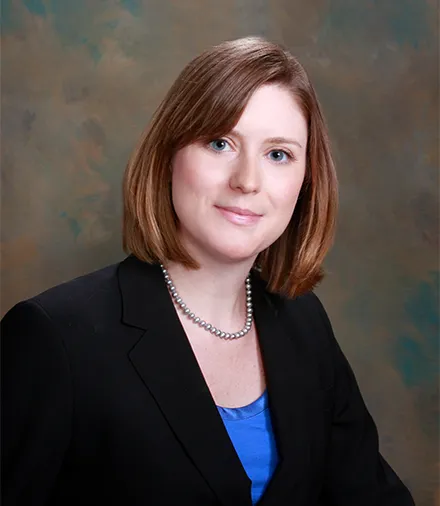Baton Rouge Wills Lawyer
Wills Attorney in Baton Rouge, LA
A last will and testament is a crucial estate planning document, even in basic estate plans. A will enables you to state the desired distribution of your assets in the probate process, among other powers.
In order for your will to protect your assets and provide for your loved ones, it has to be legally valid and enforceable during probate. A Baton Rouge wills lawyer can help you craft a will that addresses your wishes and goals and then take the necessary steps to make it legally enforceable.
A well-crafted will can help the process of probate go more quickly for your loved ones, especially if you properly address the potential for contests and disputes. An experienced Baton Rouge estate planning attorney can help you address any of your concerns and make you feel more comfortable that your wishes will be carried out.

Detailed and Effective Legal Care for Estate Planning
It can be difficult for some to discuss plans for after their death. It’s important to find an attorney who can help you feel at ease while ensuring your will addresses your needs and wishes for your estate. Constructing these important legal documents requires a detail-oriented and personalized approach to be sure your goals are upheld in a clear and useful will and other estate planning documents.
The attorneys at the Shelby Law Firm work to put you at ease as we help you through the estate planning process. Crafting a will to provide someone peace of mind about their future is as much about the technical legal skill and knowledge as it is about understanding the person creating the will and what they wish to protect. Our team provides both. We strongly believe in our responsibilities to our community and have supported clients in Baton Rouge for more than 30 years.
Why You Need a Will in Louisiana
Louisiana law specifies particular requirements for creating a valid will to ensure your wishes are honored. According to the Louisiana Civil Code, a will must be in writing, signed by the testator in the presence of a notary public and two competent witnesses. The testator must declare, in the presence of the notary and witnesses, that the document is their will. The will must include an attestation clause, a statement by the notary and witnesses affirming that legal requirements have been met.
In Louisiana, a valid will must be either a notarial will, which requires notarization and two witnesses, or a holographic will, which is handwritten and signed by the testator. Approximately 60% of estates in Louisiana go through probate, highlighting the importance of having a clear and legally sound will to avoid intestacy, where the state decides asset distribution.
With over 30 years of experience, the attorneys at the Shelby Law Firm prioritize your comfort and ensure your estate planning documents reflect your specific needs. Proper legal guidance is essential to prevent costly mistakes that could lead to family disputes or unintended asset distribution.
What Can a Will Do for Me?
Your last will and testament can manage several aspects of your end-of-life plan, protecting your loved ones and your estate after your death. Some of these aspects include:
- Personal Representative: Your will can name the executor for your estate. This is the person responsible for ensuring the provisions in your will are followed, taxes and debts are paid from your estate, the assets are distributed according to your wishes, and the estate is properly closed. Naming an executor ensures you know someone you trust to fight for your wishes is in charge, instead of the court naming someone to represent your estate.
- Distribution of Assets: The main purpose of a will is to inventory the assets in your estate and name the beneficiaries of those assets. Your real estate, personal property, and other assets can be distributed to loved ones, other individuals, and organizations that you wish to receive them. Without a will, your estate will be distributed according to intestate succession laws. This may not be how you want your assets to be distributed and may result in some assets falling to state ownership.
- Guardianships: If you care for any minor children, disabled adults, or even pets, your will can name one or more guardians for them. This ensures that they are cared for by the individuals you believe will offer them the highest-quality care. It also provides the children or adults themselves with the comfort and certainty of knowing the individual they are to be placed with, which may not always be the case for a guardian appointed by the court.
- Preferences: Your will can also outline your instructions for funeral services and burial or cremation intentions.
A will does not prevent your estate from going through probate court, but it can reduce the time and cost of the process if it is done well. You can address contingent beneficiaries if a loved one passes before they can inherit, further protecting your estate from state ownership. You can also take steps to discourage or limit the success of a will contest, as any disputes can significantly lengthen the probate process and create stress for your family.
Wills vs. Trusts: Understanding Your Options in Baton Rouge
There are several benefits to creating a trust in addition to a will. Like a will, a trust enables you to distribute your assets to your beneficiaries and place control and care of the assets to a personal representative, known as a trustee.
One important difference between a will and a trust is a trust will keep your assets from passing through probate court, while a will cannot. It can be useful to keep your estate out of probate through one or more trusts, as this will save your loved ones significant time and cost before receiving their inheritance. A trust also enables you to name specifications for when assets are released to beneficiaries, such as when they come of age.
If you are unsure whether or not you need a trust for your assets, speak with an experienced estate planning attorney. They can review your unique needs, beneficiaries, and assets and then help you make informed decisions about your estate planning options.
Why Do I Need an Attorney to Create a Will In Baton Rouge?
Although it is not legally required in Louisiana to retain an attorney while creating a will, it is recommended for the numerous benefits. If the will you create on your own is found to be invalid after your death, your assets will likely not be distributed according to your wishes, and you will have wasted the time and energy associated with creating a will.
An estate attorney has the knowledge and skill to ensure your will is legally binding. Your attorney can review your will for validity and clarity while also safeguarding it from potential contests. An attorney can also help you weigh the benefits and drawbacks of a more comprehensive estate plan. With an attorney, your estate plan will be stronger and less likely to be successfully contested, meaning your loved ones are more likely to receive the assets you wish to bestow upon them.
Probate Without a Will
If you do not create a will or write one that is found to be invalid, your estate continues through probate as intestate. Under Louisiana intestate successions laws, your property is distributed to your relatives in a specific order.
If you were married, your property is sectioned into community and separate property to be distributed. These distributing rules will not take into account how emotionally close you are to an individual but will rely only on legal relations.
In rare cases, your assets may end up in the care of the state. A will enables you to name exactly which beneficiaries get what assets, and you can also name the contingent beneficiaries you wish.
Work With Qualified Baton Rouge Will Lawyers
When you need to establish a will to safeguard you and your family’s future, contact the Shelby Law Firm.
Meet With Our Wills Attorney
About Baton Rouge, LA
Baton Rouge, Louisiana, the state capital, spans 79.15 square miles along the Mississippi River with natural flood protection from its elevated bluffs. Estate planning here adheres to Louisiana’s civil law, including forced heirship, requiring a portion of assets for certain heirs. Probate, or succession, is managed at the East Baton Rouge Parish Courthouse.
A confidential Will Registry ensures accessibility of wills. Recent legislation, Senate Bill 80 (2024), permits placing a minor’s or disabled person’s property into trusts, including pooled trusts under federal guidelines, enhancing flexibility in asset management and aligning with national standards.
Contact Us Today
Call Shelby Law Firm at 225-223-6961 or use our online contact form to schedule a free consultation.





